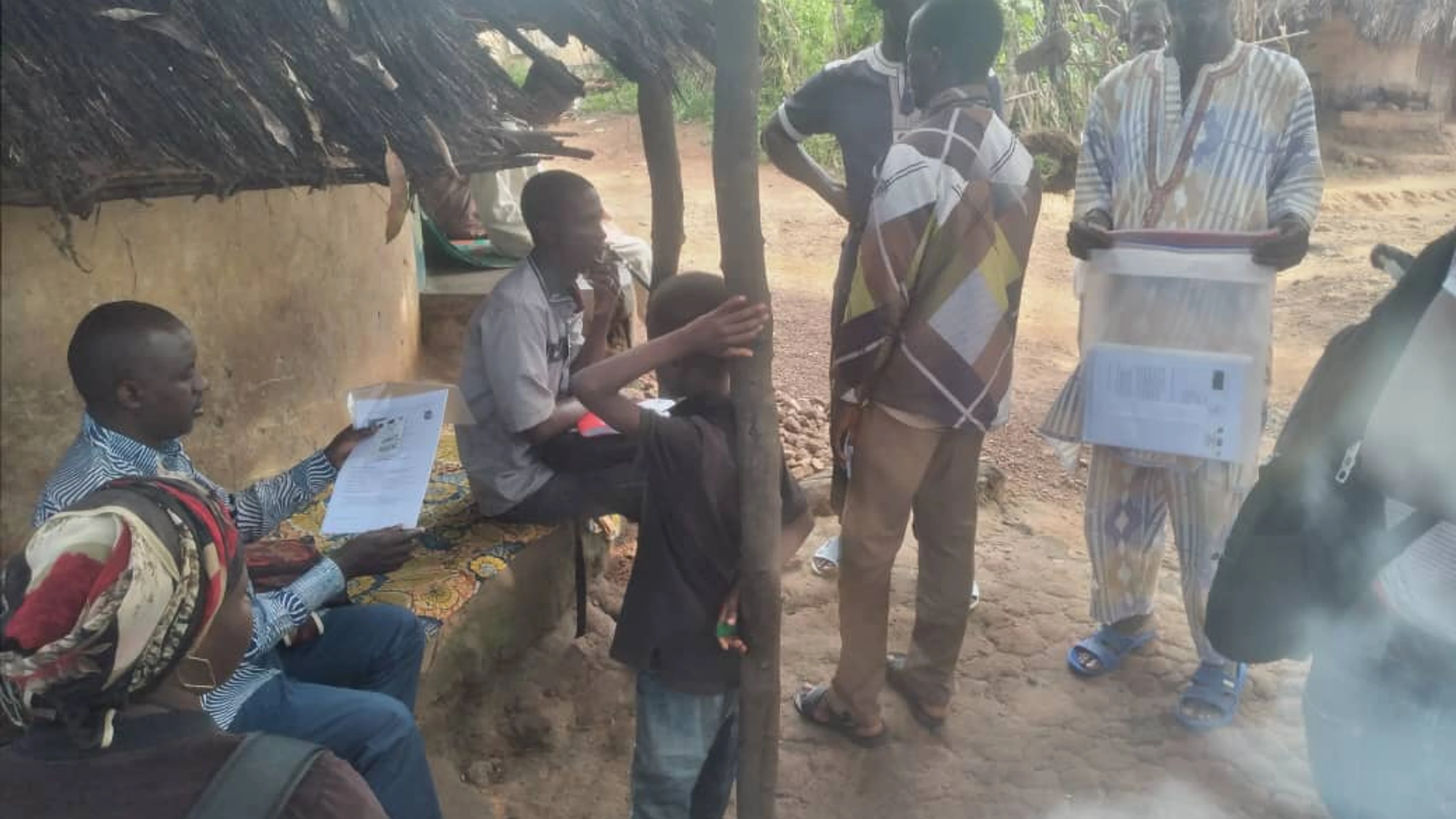28 August 2024, OSLO, Norway and London, UK - Deploying a safe and effective Lassa vaccine across 15 countries of continental West Africa could save nearly 3,300 lives over 10 years and avert up to $128 million in societal costs, new research by modelling experts shows.
Being vaccinated against Lassa Fever – a viral disease spread by rodents and infected food—would prevent millions of people from falling sick with the disease and facing prohibitive treatment costs that could otherwise push them below the poverty line, according to findings of the study by the Universities of Oxford and Liverpool and the Liverpool School of Tropical Medicine
The peer reviewed study was published 28 August 2024 by Nature Medicine.
Richard Hatchett, CEO of CEPI said:
“Lassa fever is a serious public health problem in West Africa and is already threated to spread to further regions as climate and environmental change increase epidemic risk”. This study demonstrates the urgent need for a vaccine to protect people from this debilitating and sometimes deadly disease which we believe affect many more than those who are reported, due to limited access to diagnostics and healthcare. Lassa fever has been a priority for CEPI since our launch in 2017 and we are proud to be one of the world’s leading Lassa vaccine R&D funders.”
Dr Virgil Lokossou, Head of Division – Preparedness and Response at the West African Health Organisation said:
"Lassa fever continues to pose a serious public health threat in West Africa, severely impacting our lives, health and economic systems. This modelling study highlights the burden of Lassa fever and its significant socioeconomic consequences, underscoring the urgent need to accelerate vaccine research and development as part of the regional preparedness and response efforts. The West African Health Organisation remains committed to working with our Member States, CEPI and all stakeholders to ensure that we fast-track the development of a vaccine and other tools we need to control the spread of Lassa fever and protect our communities. Time is now up for concrete actions.”
The research team, led by Senior Researcher David Smith, also assessed the impact of deploying a vaccine against a new Lassa-like virus with pandemic potential – a hypothetical disease they called Lassa X - within 100 days of its emergence. This was to model the potential impact of the 100 Days Mission in the event of a future human outbreak of a Lassa-like viral disease. The results showed that around 5,500 lives could be saved and 33,000 hospitalisations avoided over the course of a two-year outbreak if safe and 70 percent effective Lassa X vaccines were given to 40 percent of people per year starting within 100 days. The 100 Days Mission is a global goal, spearheaded by CEPI, to deliver a vaccine against Disease X in 100 days which could stop an outbreak of a new disease before it spirals out of control into a pandemic.
Lassa fever has been identified by the World Health Organization as one of the pathogens most likely to cause future severe outbreaks. Climate change and other environmental and demographic factors are threatening to put as many as 700 million people at risk of developing Lassa fever in the future, underscoring the pandemic potential of the virus and the urgent need for effective vaccines.
Lassa fever symptoms include fever, headache, muscle pain and vomiting. In severe cases, victims suffer facial swelling and bleeding from the mouth, nose, vagina or gastrointestinal tract. About a quarter of those who survive severe Lassa fever infection develop deafness.
This new study estimates that there are on average 23,700 hospitalisations and 3,900 deaths per year due to Lassa fever in West Africa. But Lassa’s true disease burden could be much higher than reported due to limited access to diagnostics and healthcare.
The modelling showed that the most effective vaccination strategy was a population-wide preventative campaign primarily targeting areas where the virus is endemic; and that reactive vaccination programmes in response to local outbreaks averted just one-tenth of the health-economic burden when compared with population-wide preventative campaigns.
David Smith, Senior Researcher at Oxford Population Health’s Health Economics Research Centre and joint first author, said ‘To our knowledge, this is the first burden of disease study for Lassa fever as well as the first to project impacts of Lassa vaccination campaigns on population health and economies. One major potential benefit of present investment in Lassa vaccination development, is increased readiness to rapidly develop and deploy vaccines against future Lassa variants with pandemic potential.’
Joanne Turner, research associate at the University of Liverpool and joint first author, said ‘The Lassa vaccination campaigns included in our analysis were designed to reflect realistic assumptions about vaccine stockpile and administration, and as such included a constrained global vaccine stockpile (<20M doses annually) and limited allocation to districts not currently classified as endemic by WHO. Consequently, the impacts of our simulated Lassa vaccination campaigns were modest in countries other than Nigeria, Guinea, Liberia and Sierra Leone. Yet the data underlying our model suggest that there is likely already a significant burden of Lassa fever outside these countries.’
Déirdre Hollingsworth, Professor of Infectious Disease Epidemiology at the University of Oxford Big Data Institute, said ‘Lassa fever predominantly affects low-income populations in rural areas and is likely to be highly underreported due to poor health access in these areas. This analysis highlights the potential impact of a vaccine in these populations’.
CEPI is one of the world’s leading Lassa vaccine R&D funders, investing in six potential vaccine candidates to date, of which four have progressed into human testing. One of CEPI’s partners, IAVI, has launched the first-ever Phase II clinical trial of a Lassa vaccine in Abuja, Nigeria.
Working with investigators in Nigeria, Benin, Guinea, Liberia and Sierra Leone, CEPI is also conducting the largest ever multi-country investigation of the epidemiology of Lassa to improve knowledge about the virus and how to counter its attacks.



.webp)
